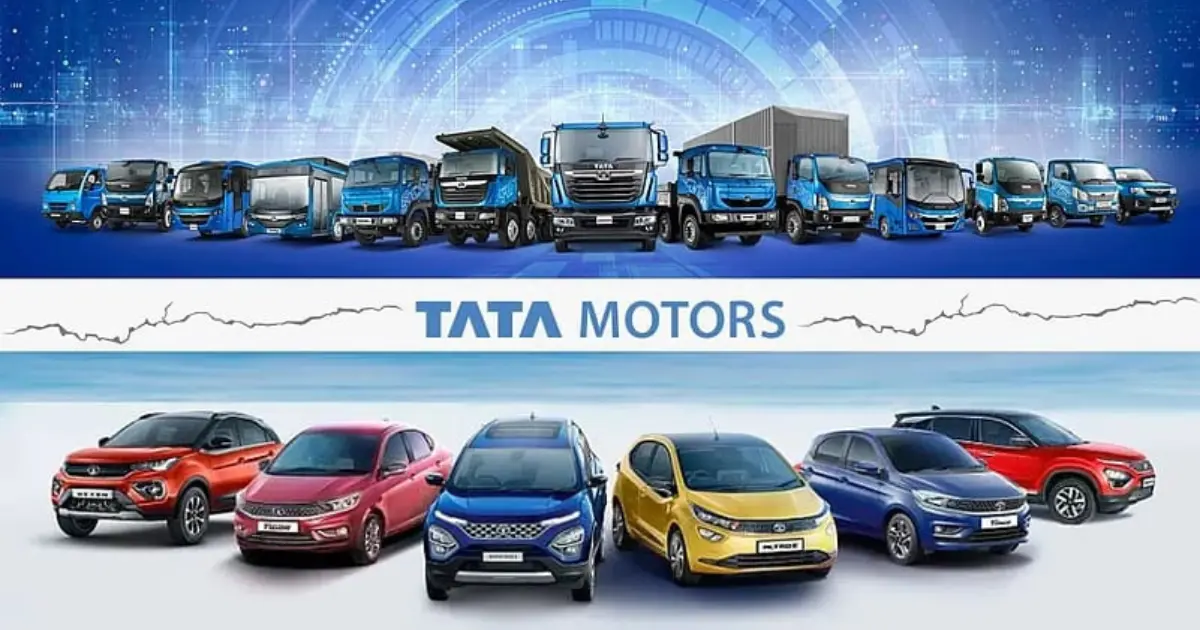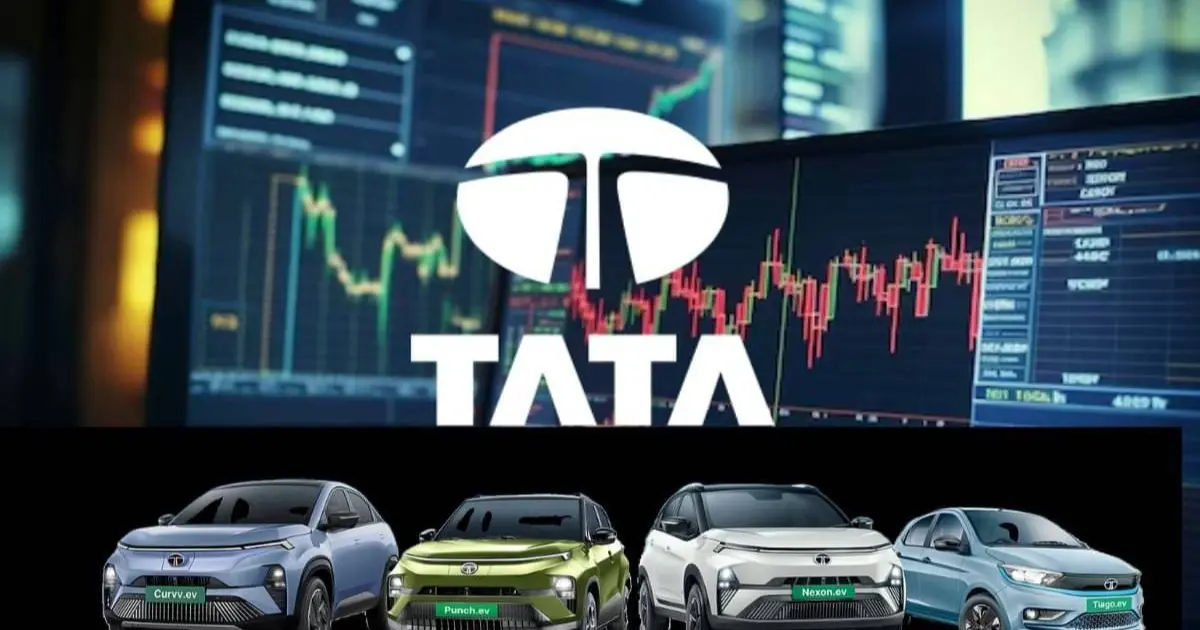Introduction
Tata Motors, one of India’s most iconic automobile companies, has recently announced a significant demerger plan. The move involves restructuring its passenger vehicle (PV) and commercial vehicle (CV) businesses into separate listed entities. While such corporate actions aim to unlock value, the announcement has sparked both excitement and volatility in the market. Tata Motors stock has already witnessed a 7% decline in the past week, leaving investors questioning whether this restructuring will bring long-term gains or further instability. This article provides a deep dive into the Tata Motors demerger, its implications, market reactions, and the road ahead for investors.
Understanding the Tata Motors Demerger
The Tata Motors demerger is essentially a corporate restructuring plan where the company separates its business divisions into two distinct entities.
Key Aspects of the Demerger
-
Passenger Vehicle (PV) segment, including electric vehicles (EVs), will form one entity.
-
Commercial Vehicle (CV) business, including trucks, buses, and fleet solutions, will be housed separately.
-
Tata Technologies and Tata Power’s EV infrastructure tie-ups may align differently post-demerger.
This separation aims to provide each business with sharper focus, independent strategies, and improved capital allocation.
Why Tata Motors Opted for Demerger
The decision stems from multiple strategic and financial considerations.
Strategic Reasons
-
Focus: PV and CV businesses require different market approaches.
-
EV Push: Passenger EV growth needs agility, separate from CV operations.
-
Valuation Unlocking: Demergers often help reveal hidden value in distinct business verticals.
Financial Reasons
-
Clearer financial reporting for each segment.
-
Independent fundraising for growth without impacting the other arm.
-
Potential to attract global EV-focused investors.

Market Reaction and Stock Performance
Since the announcement, Tata Motors’ stock has faced short-term pressure. In just seven trading days, the share price dropped by nearly 7%.
Why the Fall?
-
Investor uncertainty about execution.
-
Fear of potential short-term disruptions.
-
Global market weakness amplifying selling pressure.
However, analysts suggest that volatility is natural in such scenarios, and clarity post-demerger could improve sentiment.
Impact on Investors
The Tata Motors demerger carries both risks and opportunities for shareholders.
Potential Benefits for Investors
-
Separate valuations could boost long-term returns.
-
Sharper growth strategies may attract institutional investors.
-
Clearer visibility into business profitability.
Risks to Consider
-
Short-term volatility and uncertainty.
-
Execution challenges in separating operations.
-
Global market trends may overshadow positive restructuring effects.
Passenger Vehicle (PV) Division Outlook
The PV division, especially EVs, has been Tata Motors’ growth engine in recent years.
Strengths of PV Division
-
Leading EV market share in India.
-
Growing popularity of Tata Nexon EV and Tiago EV.
-
Support from government subsidies for EV adoption.
Challenges Ahead
-
Competition from global automakers like Tesla and BYD.
-
Supply chain disruptions in battery sourcing.
-
Need for strong R&D investment.
Commercial Vehicle (CV) Division Outlook
The CV segment is Tata’s legacy business and a dominant player in India’s truck and bus market.
Strengths of CV Division
-
Strong market share in heavy-duty trucks and buses.
-
Expanding demand due to infrastructure growth in India.
-
Established dealership and service network.
Challenges Ahead
-
Rising fuel costs impacting demand.
-
EV transition in the commercial segment still in early stages.
-
Competition from Ashok Leyland and global players.
Impact on the Indian Auto Industry
The Tata Motors demerger is more than a company-specific event; it could reshape the industry.
-
Competitors may feel pressure to restructure their businesses.
-
EV innovation is likely to accelerate with focused investment.
-
Supplier ecosystems may see realignment based on PV and CV priorities.
Global Perspective on the Demerger
International investors and analysts are closely watching the Tata Motors restructuring.
Positive Outlook
-
Could attract global funds focused on EV growth.
-
Better governance and transparency.
-
Stronger competitive positioning globally.
Concerns
-
Execution complexity in global operations.
-
Impact of global economic slowdown.
-
Currency volatility affecting exports.
Lessons from Other Indian Demergers
India has seen several successful and challenging demergers.
Success Stories
-
Reliance Industries’ telecom and retail spinoffs boosted valuations.
-
ITC separated its FMCG and hotel businesses with strong results.
Challenges in Past Demergers
-
Delays in execution.
-
Market overestimation of valuation benefits.
Tata Motors will need to ensure execution discipline to avoid pitfalls.
Analyst Opinions on Tata Motors Demerger
Market experts remain divided on the immediate impact.
-
Optimists believe it will unlock significant shareholder value.
-
Skeptics caution about execution challenges and short-term pain.
-
Most agree that the next 12–18 months will be crucial.
What Should Investors Do Now?
For retail and institutional investors, decision-making depends on risk appetite.
Suggested Investor Approach
-
Long-term holders may benefit from staying invested.
-
Short-term traders must be cautious due to volatility.
-
New investors should track valuation clarity post-demerger.
FAQs
What is the Tata Motors demerger?
The Tata Motors demerger is a restructuring move where the company will separate its Passenger Vehicle (PV) and Commercial Vehicle (CV) businesses into independent listed entities.
Why did Tata Motors decide to demerge?
The company aims to improve strategic focus, unlock hidden value, and give both PV and CV divisions independent growth and funding opportunities.
How will the Tata Motors stock be impacted?
In the short term, volatility is expected. However, in the long term, analysts believe the demerger could unlock value for investors through clearer business focus.
Will Tata Motors’ EV business benefit?
Yes, the PV entity, which includes EVs, will gain agility, independent investments, and a stronger global competitive position.
Is the demerger good for retail investors?
Retail investors could benefit in the long run, but they should be prepared for short-term stock fluctuations and closely follow company announcements.
How long will the demerger process take?
Demerger processes typically take 12–18 months, depending on regulatory approvals, execution efficiency, and shareholder agreements.
Will Tata Technologies be part of the demerger?
Tata Technologies operates as a separate listed entity. However, its synergies with PV and CV businesses may realign once the demerger is finalized.
What are the risks of the Tata Motors demerger?
Risks include execution delays, global market uncertainties, and potential investor over-expectations that may not immediately translate into stock price gains.
Conclusion
The Tata Motors demerger marks a transformative step for the company and the Indian automobile industry. By creating independent entities for passenger and commercial vehicles, Tata Motors is betting on sharper focus, improved transparency, and stronger growth opportunities. While short-term volatility has weighed on the stock, long-term investors may find significant value once the restructuring is executed successfully.








